Lessons on becoming a great Field Service Engineer
This article looks at how to become a great Field Service Engineer. The author works at different locations as an Instrumentation Specialist. Meet Ajit Singh Rathod.
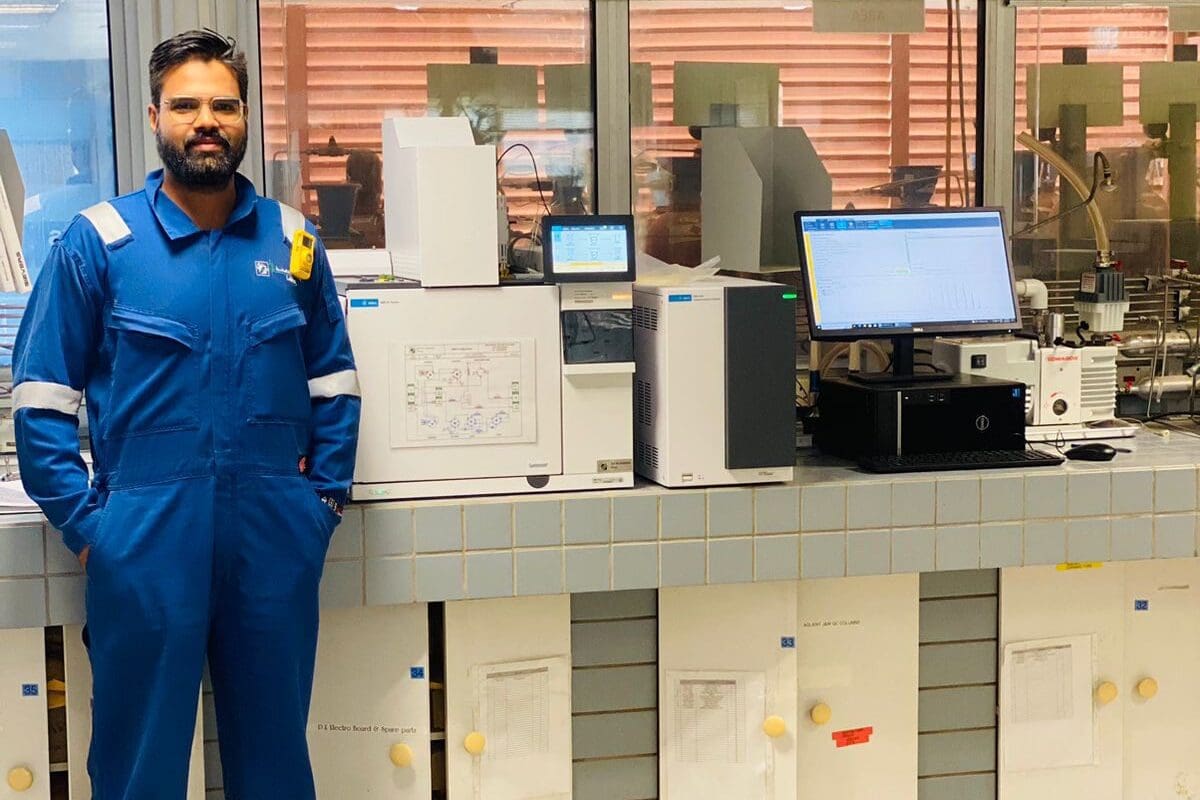

An expert Bioanalytical Equipment Field Service Specialist
Background and path to becoming an Engineer
As a child did science, engineering, and technical things interest you?
When I was a child, I was curious about any object. For example, small cars with batteries and motors. After a few days they broke and so I would remove the battery and motor and make my own projects. For example, I made a windmill. Once I even made a car for a competition at school with four motors. As it had four motors it was very fast and well controlled.
Was there a particular person who suggested engineering to you?
Within my group of four close friends, they all wanted to do engineering, so this helped me to decide.
I was most fascinated by the hands-on work not the theory. So, I studied a technical course. However, then my friends persuaded me to continue studying engineering and my family supported this.
Who has/have been inspirations to you in becoming a great service engineer?
I used to read a lot about electrical topics and so Nikola Tesla became and remains an inspiration.
I met Mr Baban Mahekar when I worked at GBA as he was a trainer. He showed me lots of new things like GC-MS/MSMS and as well we had lots of in-depth discussions and he coached me. We are still in touch and when we call each other we cover a bit of personal chat and then we always move on to a detailed technical discussion.
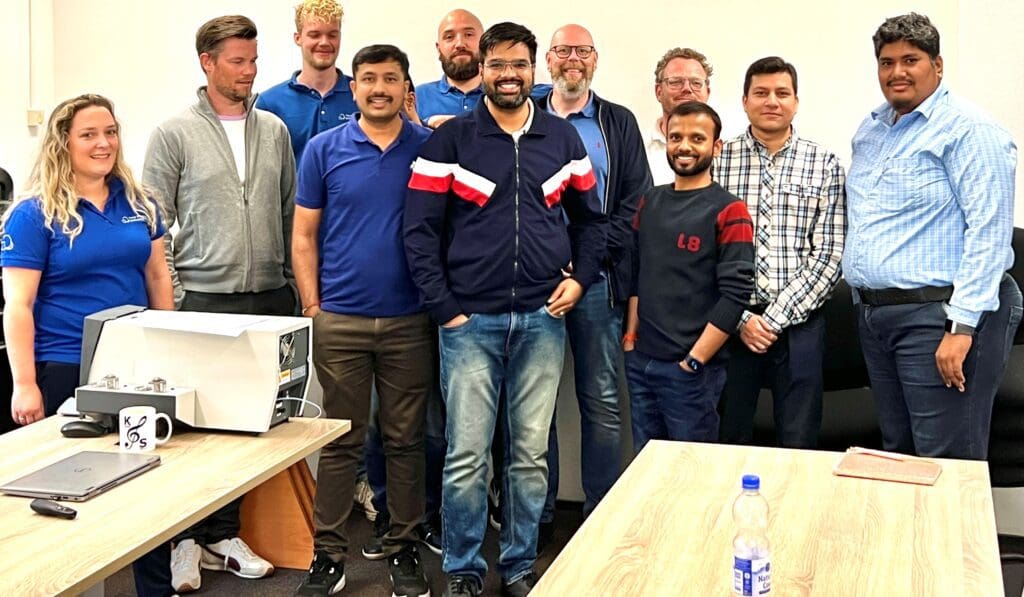

Chromatography
How do you explain what chromatography is to family and friends who are not technical?
There are two examples I can give to explain chromatography.
Going shopping
When we go shopping, we buy different things from different shops and put everything into a bag. So, it’s a complex mixture. When, we come back home we empty the bag by separating things for different people or to put in different places. This is what chromatography does separates components from a whole.
People on a bus
Another example is people travelling on a bus. People get onto the bus and the bus travels. Then different people get off at different stops. This is just like the different components being separated from a substance. Once the bus has emptied, the chromatography run has finished.
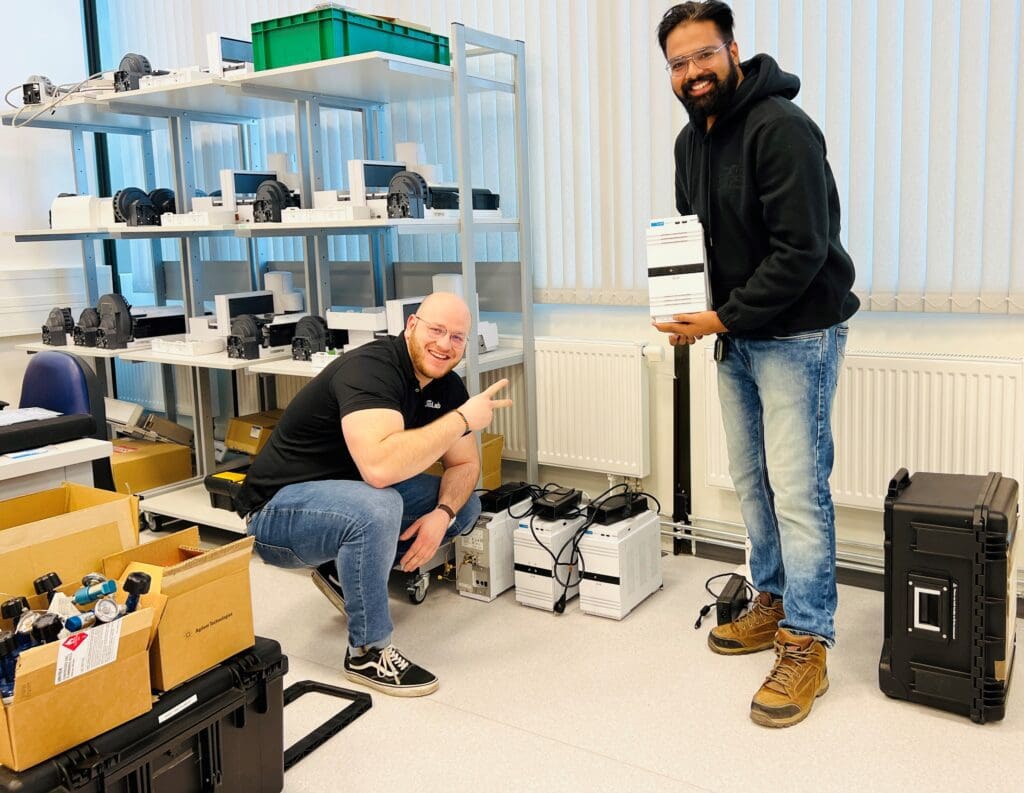

Moving countries as part of the path of a great service engineer
How quickly did you adapt to life in Dubai?
I worked in India to start with at Agilent and Perkin Elmer. Then I had the chance of this role with the Gulf Bio Analytical Group in Dubai.
Life here in Dubai is very similar to life in India in many ways. Most of the population here is from India so we can have the same or similar language, food etc. The main difference is climate as the weather is very hot for many months and then it is the winter. So, my wife and I miss the seasons we were accustomed to in India especially the rainy season.
Of course, as well we miss family, relatives, and friends.
What advice would you give to someone else moving countries for work?
I try and inspire people to consider and to do this. It’s a big world and if you work in another country, you can experience different cultures and meet different people. Some people are nervous about moving to another country, but I suggest, to try it and see as there are lots of positives.
I have travelled many countries like Germany, Netherlands, Belgium, Italy, Qatar, Oman, UAE and it’s one of the best decisions I took.


Typical week as a field service engineer
What’s your typical week like?
There is no fixed pattern it is random and varies significantly.
Some weeks I am working locally, some weeks travelling to another country and sometimes to a very remote location.
Working locally
If I am working locally, I need to travel 200-330 km daily. So, with the working day and the travel time, it means the day is long – approximately 12 hours.
International location work
If the work means that I am travelling internationally, then the main challenge is meeting new people. Some people are very welcoming and easy to communicate and work with and some are not. However, as long as we deliver what they need or what we have promised, the relationship always becomes smooth. As well you always learn a lot whenever you are working.
Remote location work
Sometimes the work I need to do is on a remote site and this is the most challenging in terms of location. Firstly, it can be 400 or 500 km away and I usually have to travel by car. Then when I arrive there is a lot of security and so I can’t have any device (mobile or laptop) with a camera on. So, while I am there, I have a different basic mobile phone and can feel very isolated. In addition, often it is not possible to access the internet, or the internet access is very poor and intermittent. The minimum stay is a week, and it is very isolating and limiting.
Some sites are in very dry places and so there is nothing green not a single tree.
Also sulphur levels are high and so you need to be very cautious.
Some remote sites are in the middle of the sea so travel to these will be on a small plane or chopper. Then you stay in a small cabin, and it is very basic and cramped. Again, there are no mobiles or laptops so you cannot be in regular contact with family and friends and have nothing to do after work. Again, sulphur levels are an issue.
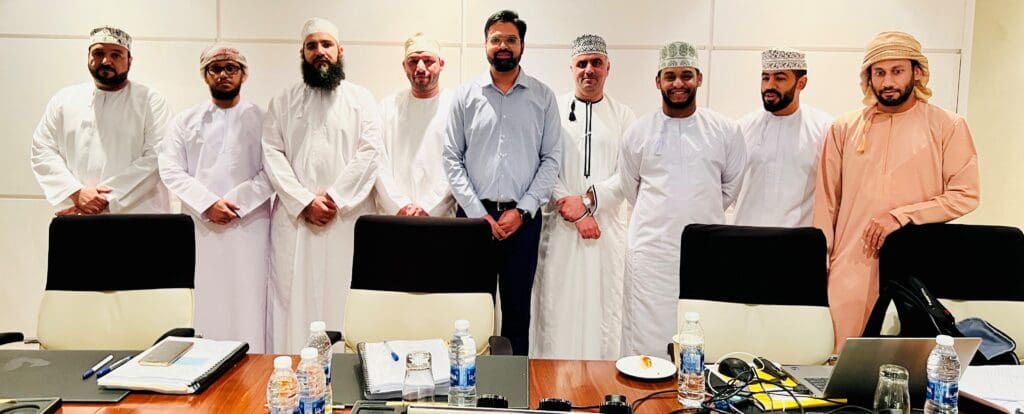

Working away from family as a field service engineer
What is your main concern when you are working on site and away from home?
My only concern is my family as I am away a lot. This is the challenge of being a service engineer as your family will need to sacrifice, not just you.
Sometimes you are not with your family at a happy, sad, or difficult time.
Sometimes you can’t attend a special event like an anniversary, birthday, or puja etc.
It feels like a large sacrifice when you are away on such an occasion.
Types of equipment
What type of equipment do you install and work on?
Gas Chromatography (GC)
GC-Headspace (HS).
Mass spectrometer, MSMS.
Total Sulphur/Nitrogen Combustion analyzer.
Gas Generators (Hydrogen, Nitrogen, Zero Air)
Microwave Digestor/Extraction system.
Special GC detectors-SCD/PFPD/FPD/NPD/FID/TCD.
GC Analyzers-RGA, NGA, DHA, SIMDIS, Reformulyzer, Low-Ox, TOGA.
What is simulated distillation?
Simulated distillation takes crude oil which is a thick black viscous oil. This is then heated and at different temps, different products are produced: firstly petrol, then diesel, then kerosene, then tar.
In crude there will be 200/250 compounds.
Training
How much of your role is to provide training?
I am an Analyzer specialist- trainer and so clients often ask me to train users and engineers when I am on site. So, I train them in how to use the equipment and then how to process the results.
I train experienced and new users on GC, GC-MS, GC-Analyzers and many other technologies.
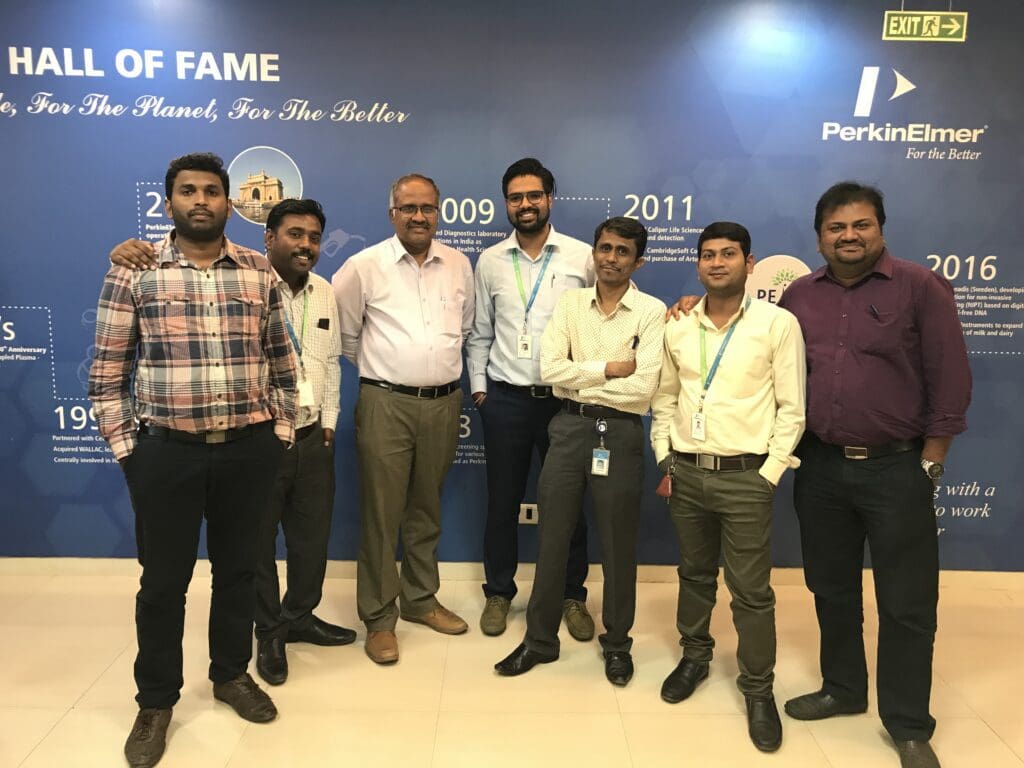

Most interesting equipment
What is the most interesting/best designed piece of equipment you work on or have worked on?
Refinery gas analysers
I feel very comfortable and confident with these instruments as I can completely relate this to a fully functioning refinery. A refinery gas analyser reflects the fully functioning refinery. How a refinery works at what different temperatures or with what different parameters and what different gases are produced.
TOGA
There is another gas analyser which is called a TOGA (Transformer Oil Gas Analyser). The function of a TOGA is to detect different types of gases which are generated in oil.
To understand this properly we need to understand what a transformer does. A transformer is basically used for either stepping up or stepping down the voltage, or to distribute the voltage. For example, from the power grid to different housing or commercial units. So, as the very high voltage passes through the transformer, and so the transformer needs to have internal cooling and insulation.
So, on very big transformers which can be the size of a house you will pour lots of oil into it. The function of the oil is to keep the transformer cool from inside and to have proper insulation.
Transformers are working 24/7, 365 days per year and because of this they generate a lot of heat. Therefore because of the constant flow of very high voltage, lots of different types of gases are generated inside the transformer. These will then mix with the oil.
Certain gases are dangerous and if the levels reach a certain point and mix, there is the chance that the transformer can explode. So, every 12 hours oil is analysed on the TOGA to make sure it can’t explode/ignite. As well the operators keep a record of the results especially of the hydrogen and acetylene levels because there is a specific limit. These gases have to be within a certain range and within the limit. If hydrogen or acetylene is too high, we have to shut down the transformer and change the oil.
So, TOGA plays a vital role in a power distribution company.
GC/MS (Gas Chromatography Mass Spectrometry) system
The GC/MS system is another system I like to work on.
An example of the uses of this is when suspicious substances are found at airports. We inject the samples (solid or liquid) taken at the airport into the GCMS system and the system analyses and shows the different components present. Different countries have a list of different drugs which are banned or limited. There are lots of different types of drugs being manufactured now and detecting these dangerous drugs is very challenging.
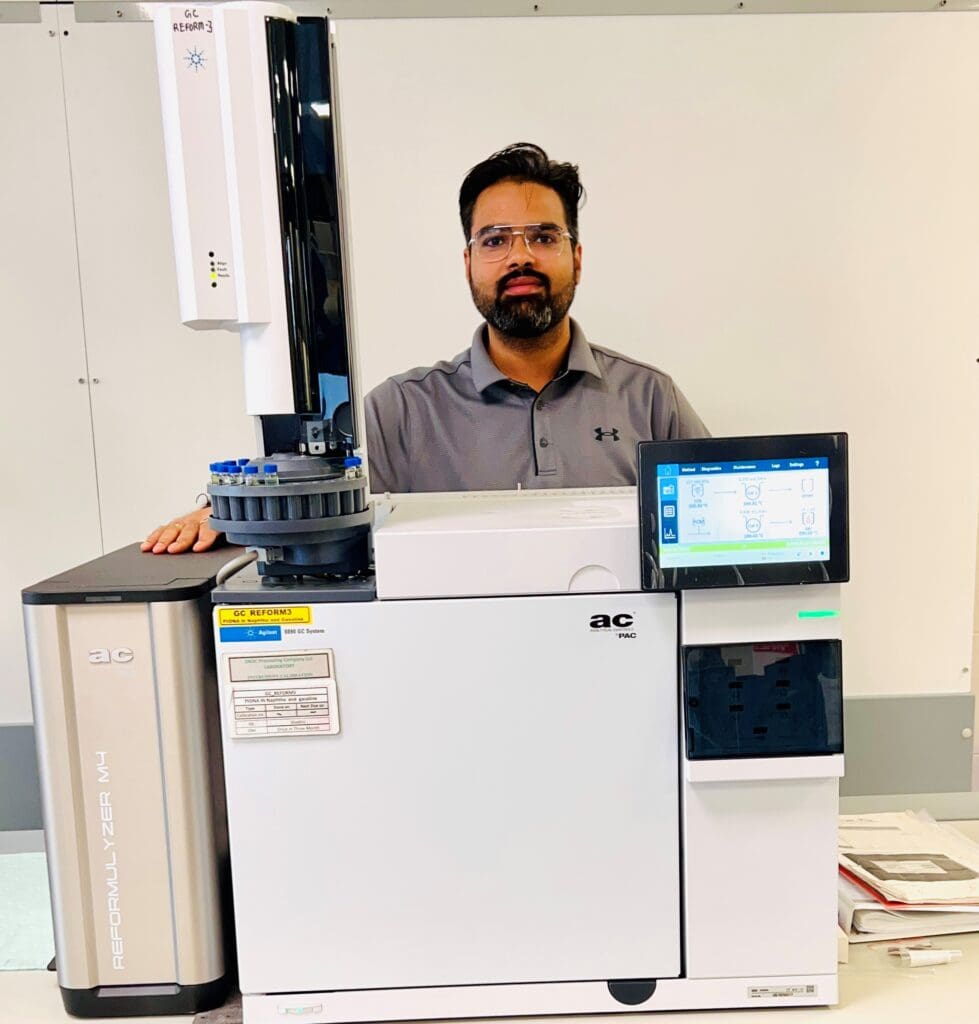

Becoming a great service engineer
What sort of person makes an excellent Field Service Engineer?
To become a perfect field service engineer, you need the following three things.
Physical and mental fitness
Working as a field service engineer is not an office or a work from home job. You have to travel, may have to climb a structure or go into a mine. So, you need to be physically fit. As well you need to be mentally fit as you will during some of your work time be remote and cut off from the world.
Family support
Family support is crucial to a field service engineer. The family needs to understand the job and to agree to support the engineer. Often, as a field service engineer you can be away for 10-15 days out of a month. Without family understanding and cooperation, this would be tough. There is sacrifice from the engineer and from the family.
To be technically sound
A field service engineer needs to have in depth understanding and not just to understand the basics. A perfect field service engineer will always be asking the ‘why’ and ‘what’ questions.


New people
What advice would you give to someone who has just started their first job as a field service engineer in chromatography?
Firstly, understand the instrument or technology from A to Z including the very basics.
An example of understanding the basics is to know what the word chromatography means. It comes from Greek:
Chroma means colour and graphein means to write.
So, together they mean to separate pigments (originally) and now component chemicals.
Secondly, spend more time with each instrument. Don’t just finish your job but spend more time with the customer to really understand what they do, and therefore what is the purpose of the instrument, and what is the importance and the role the results will have.
To conclude, build a strong base and ask questions (of yourself, customers, and other engineers) and then you will become a very good engineer.
The author
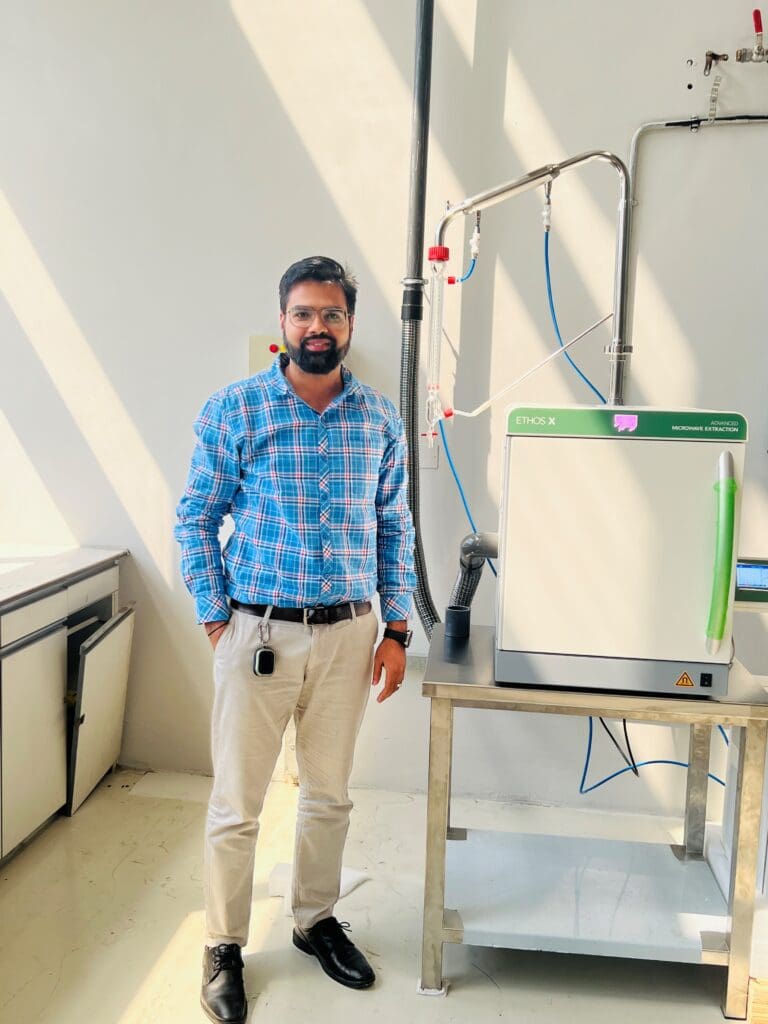

Ajit Singh Rathod, is a degree qualified Electrical Engineer as well as an Instrumentation Specialist by profession, and Customer First/ Solution Provider by attitude.
He lives his life by these lines:
“Worship the Supreme with your work”,
which means apart from direct worship, your work can also be engaged in worship.
Bhagavat Gita 18.46


Responses